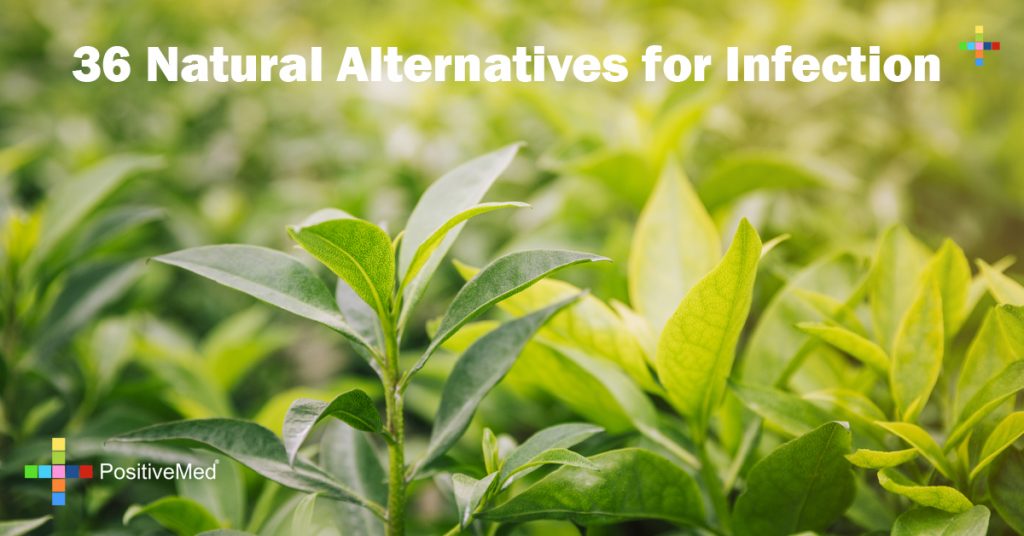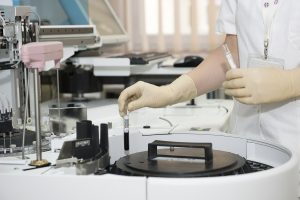
This is an amazing article, I firmly believe in the body’s ability to heal itself and to try natural remedies first. I do not believe in the exclusion of professional medical advice however, and your doctor should be kept abreast of all remedies you are trying.

Here are 36 natural substances which have been studied to help to support our body’s immune system to heal itself!
- Manuka honeyfights serious infection caused by MRSA
- The inhalation of tea catechinappears to suppress MRSA infectionin the elderly.
- Tea treetopical preparations are superior to standard topical regimen for the clearance of MRSAcolonization.
- Garlic and teahave antibacterial activity against Klebsiella, as well as drug resistant strains of Saphylococci, Enterococci and Psedomonas aeruginosa.
- Water extract of garlichas antimicrobical activity against multidrug-resistant bacteria and Candida species, and many other microbials.
- The compound found within garlicknown as allicin has antibacterial activity against methicillin-resistant Staphylococcus aureus.
- Probiotic therapyhas therapeutic value in treating Klebsiella infectionin children.
- Susceptibility to ear disease in childrenmay be a result of deficiencies of zinc and vitamin A.
- Topical nanocrystalline silverdressing may provide an alternative treatment for MRSAinfected wounds to oral antimicrobials.
- Cranberrymay reduce the risk of urinary tract infections by inhibiting biofilmsin the bladder.
- Probiotic strains from breast milkare superior to antibiotics in the treatment of infectious mastitis.
- Honeymay have a therapeutic role in treating refractory chronic rhinosinusitus.
- Honeydew and manuka honeyhas strong antimicrobial activity against multi-drug resistant pathogens.
- Cinnamon verum barkhas the highest antimicrobial activity, particularly against antibiotic resistant strains, of 13 essential oils tested.
- A number of plant oil extractsinhibit multi-resistant strains of bacteria and yeast.
- Clove, guava and lemongrassexhibit the highest synergism rate with antimicrobial drugs.
- Thyme and Eucalyptus oilhave antibacterial activity against MRSAisolates.
- Compounds isolated from Bay leafhave anti-MRSA activity.
- The essential oil of dill and peppermintenhances the antimicrobial activityof nitrofurantoin against enterobacteria.
- Grape seed extracthas bactericidal effects on MRSA.
- A combination of Citricidal (grapefruit seed extract) and geranium oilshowed the greatest anti-bacterial effects against MRSA.
- Rosemaryhas activity against drug-resistant bacterial and fungal pathogens.
- Propolis exhibits antimicrobial effects on Escherichia coli and Staphylococcus aureus strains resistant to various antibiotics and some microorganisms.
- Cumin essential oilexhibits anti-Klebsiella activity.
- Green teaexhibits anti-MRSA activity.
- Mango seed kernel extractmay potentially be useful as an alternative therapeutic agent or an adjunctive therapy along with penicillin G in the treatment of MRSA infections.
- Wormwood, tarragon and eucalyptuscontain the compound pipertone which reduces antibiotic resistance against Enterobacter cloacae.
- Alpinia galangacontains a compound with activity against multi-drug resistant bacteria.
- Elecampane (Inula helenium)has potent antisaphylococcal activity, including against MRSA.
- Lavender oilhas antimicrobial activity against methicillin-sensitive and methicillin-resistant Staphylococcus aureus.
- Lactobacillus rhamnosus GGinhibits invasion of cultured human respiratory cells by macrolide-resistant group A streptococci.
- Limehas potent antibacterial activity against multiple drug resistant E. coli.
- Nigella sativahas anti-bacterial activity against clinical isolates of methicillin resistant Staphylococcus aureus.
- Nutmegcontains a compound with potent anti-biofilm activity against oral bacteria.
- Olive leaf extractdemonstrates antimicrobial activity against Campylobacter jejuni, Helicobacter pylori and Staphylococcus aureus [including meticillin-resistant S. aureus (MRSA)].
- Cinnamon and Oregano, containing cinnamaldehyde and carvacrol, respectively, exhibit powerful antimicrobial activity against antibiotic-resistant strains of Campylobacter jejuni isolates.







